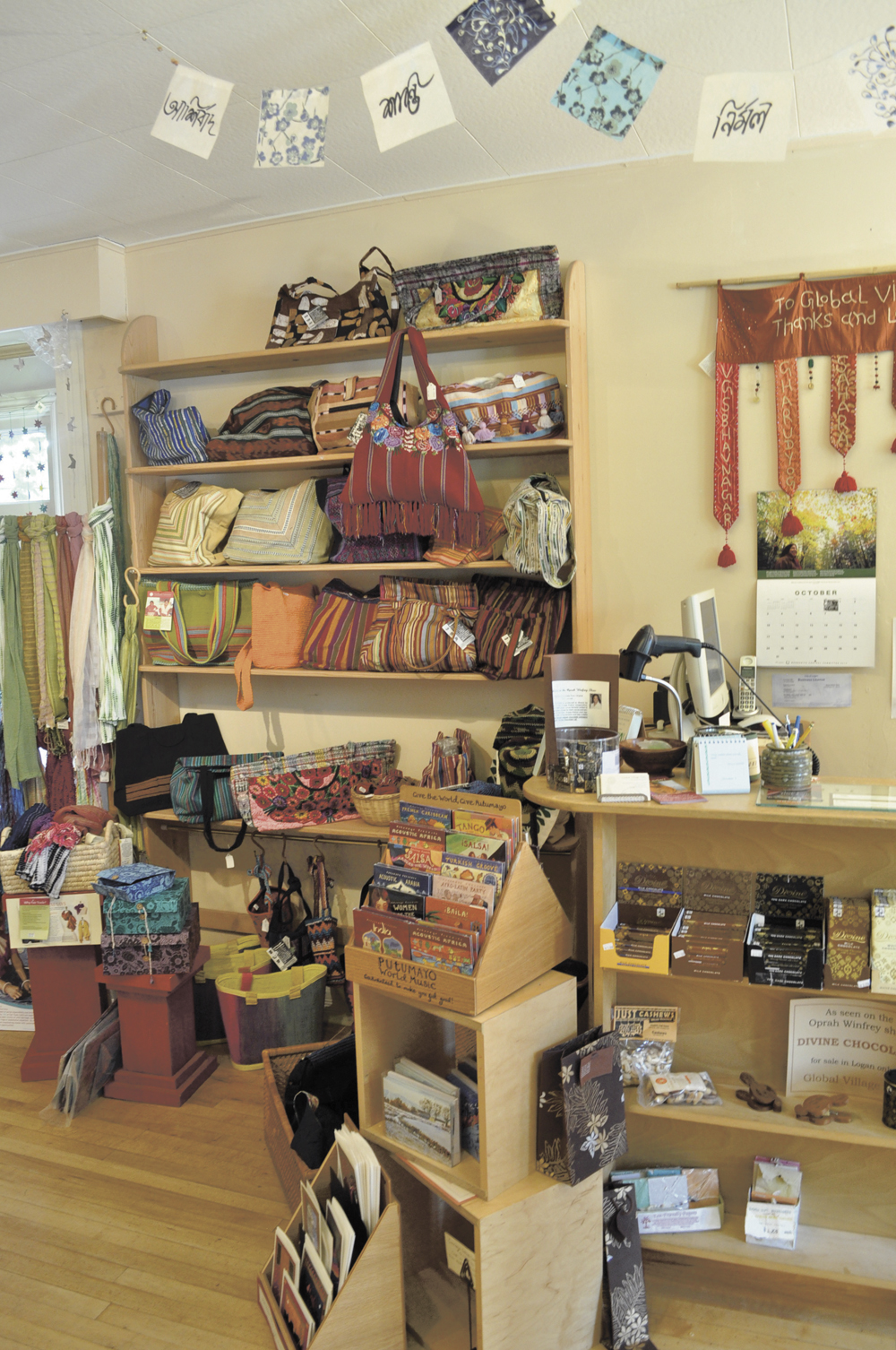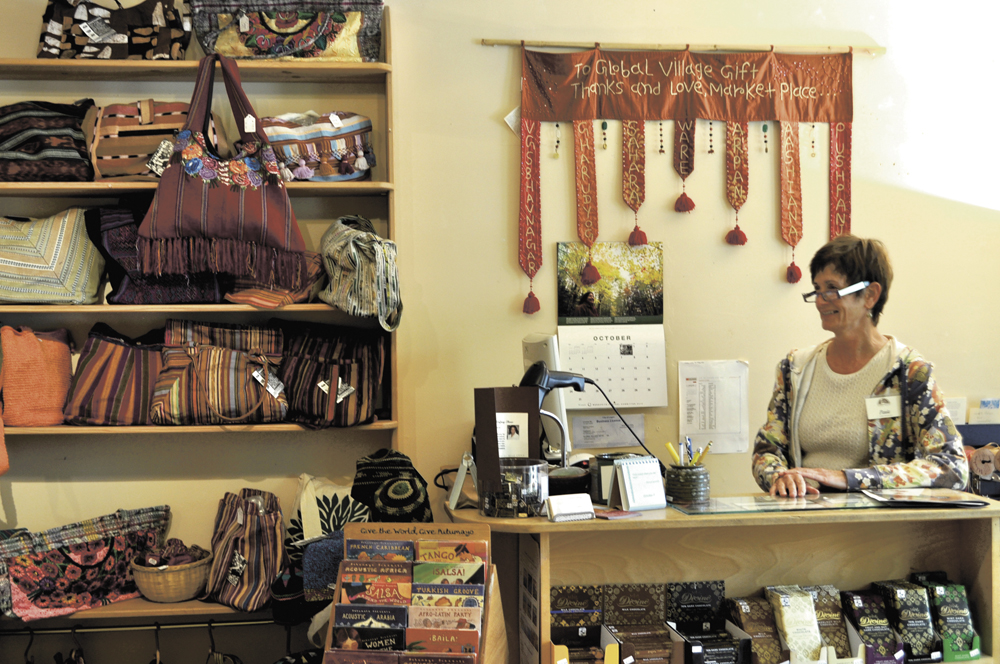All around the world
The quaint, butter-yellow Victorian house just east of Federal Avenue is much more than an ordinary dwelling.
Global Village Gifts, located at 146 N. and 100 E., is a haven of handicrafts from around the world and home to a strict standard of equality and fair trade. The nonprofit establishment started off as a Christmas bazaar; Sally Keller, manager of Global Village Gifts, sold products from the fair trade vendor Ten Thousand Villages over a weekend at the First Presbyterian Church. Fueled by much success, Keller said she opened the store under the name and umbrella of Ten Thousand Villages, specifically the Salt Lake City location. In September 2005, Keller said the store became Global Village Gifts, opting to become independent from Ten Thousand Villages and therefore increase vendor opportunities.
The store is run by Keller and Julie Barker, as well as numerous other volunteers committed to the duty of fair trade.
“Our mission is to educate about fair trade and to help the artisans,” Barker said.
Though Barker said her first occupation is that of a mother, she has learned valuable business and retail skills through her service.
“This is a way I can help these artisans and still live in Cache Valley,” she said.
Barker said Global Village Gifts recently gained membership in the Fair Trade Federation, allowing future promoting and networking opportunities within the community of fair trade.
According to the Global Village website, the store is stocked with artisan goods from 30 different countries spanning Africa, Asia and South America. The store offers everything from woven scarves and bags to authentic instruments and children’s toys. They carry rings made from telephone wire and animal bones, and intricately beaded necklaces and bracelets.
A trip to Global Village Gifts is an educational adventure. Spotlights on specific artists give a face and meaning to otherwise nameless merchandise. According to the Global Village website, “Focus is on educating the public on the principles of fair trade and learning about the artisans.”
Barker said fair trade works like so: artisans in various countries throughout the world, the majority of them mothers, are hired for their fine handiwork skills. She said with contractors like Ten Thousand Villages and SERRV International, artisans are paid in full for their materials and labor even before the product leaves the country.
“The buyers seek out the poorest of the poor and try to find a way that they can give them employment by making these crafts,” Barker said. “Then they negotiate a price that would be a fair wage for them to support their family and send their kids to school.”
Barker said free trade enables the artisan to immediately provide for his or her family and community without having to wait on merchandise to ship to a destination thousands of miles away and hopefully make a meager profit.
“We just hope we can sell it all,” she said.
The nearly exclusive use of volunteers throughout the fair trade process holds its nonprofit standard and minimizes cost for the consumer.
“It’s a great way to help women and their families provide a stable income,” said Rachel Rambay, fair trade volunteer and USU graduate.
Barker said through community involvement in service fairs, university activities and the annual Gallery Walk, Global Village Gifts gains faithful customers who become faithful volunteers. Global Village Gifts is constantly seeking new volunteers and accepts online or in-store applications. She said volunteers are trained with a general knowledge of the handicrafts and can therefore help educate new customers as well as help with requests for items from specific countries.
Volunteer and USU freshman Vanessa Bertolio said she values the hands-on retail experience of volunteering, as well as the bridge of acclimation it forms between not working and a first job.
Global Village Gifts is open Thursday and Friday from 12-6 p.m. and Saturday from 10 a.m. to 6 p.m. Extended holiday hours in mid-November will open the store every day but Sunday.
Bertolio said she finds herself saying, over and over, as she sorts through new shipments, “This is new, I have to get this.”
– noelle.johansen@aggiemail.usu.edu

GLOBAL VILLAGE GIFTS is a nonprofit establishment that started as a Christmas bazaar. The store recently gained membership in the Fair Trade Federation. BRECK BYINGTON photo

